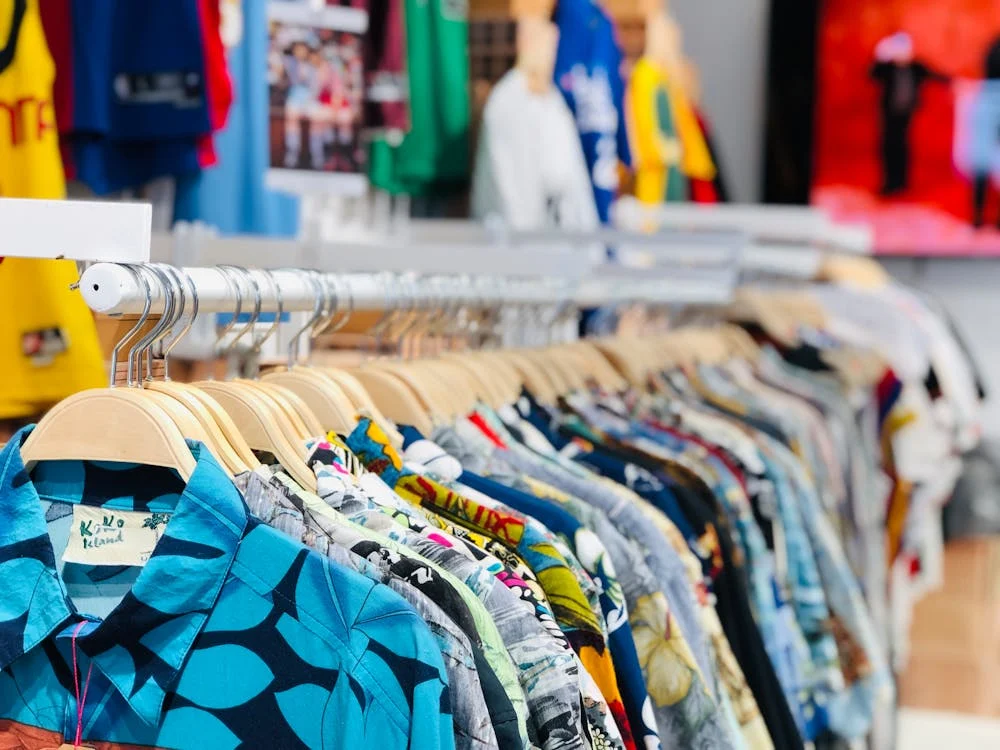Best Modern Clothing Brands Review 2024


Clothing Brands
The fashion industry is a dynamic and ever-evolving landscape where clothing brands play a pivotal role in shaping trends and consumer preferences. With the rise of e-commerce and social media, modern clothing brands have gained unprecedented influence, extending their reach to global audiences. In this article, we’ll delve deep into the world of clothing brands, exploring their strategies, impact, and the elements that contribute to their succes
Thank you for reading this post, don't forget to subscribe!The Evolution of Clothing Brands
From Traditional to Digital
Clothing brands have undergone significant transformations over the decades. Traditional brick-and-mortar stores were once the primary platform for showcasing fashion. However, the digital revolution has shifted this paradigm, enabling brands to reach consumers through online stores, social media platforms, and mobile apps. This shift has not only expanded their market reach but also allowed for more personalized and interactive shopping experiences.
Brand Identity and Storytelling
A clothing brand’s identity is no longer just about the logo or the clothes it sells; it’s about the story it tells. Modern consumers are drawn to brands that resonate with their values and lifestyles. Brands like Patagonia, known for its environmental activism, and Gucci, which blends tradition with contemporary design, have successfully leveraged storytelling to build strong connections with their audiences.
Key Elements of a Successful Clothing Brand

1. Quality and Craftsmanshi
At the core of any successful clothing brand is the commitment to quality. High-quality fabrics, meticulous craftsmanship, and attention to detail set premium brands apart from the rest. Consumers today are more informed and discerning, valuing longevity and sustainability in their clothing choices. Brands that prioritize these aspects build trust and loyalty among their customers.
2. Innovative Design
Innovation in design is crucial for standing out in the crowded fashion market. Whether it’s through unique cuts, fabric technology, or avant-garde styles, brands that push the boundaries of fashion often set trends rather than follow them. Designers like Virgil Abloh of Off-White and Alessandro Michele of Gucci have revolutionized modern fashion with their bold and unconventional approaches.
3. Sustainable Practices
Sustainability has become a significant factor in the fashion industry, with many brands adopting eco-friendly practices to reduce their environmental impact. From using organic materials to implementing ethical labor practices, clothing brands are increasingly prioritizing sustainability. Brands like Everlane and Stella McCartney have built their reputations on transparency and environmental consciousness, appealing to the growing segment of eco-conscious consumers.
The Role of Marketing in Brand Success
Influencer Marketing and Social Media
In the digital age, social media and influencer marketing have become powerful tools for clothing brands. Platforms like Instagram and TikTok allow brands to reach millions of potential customers through visually appealing content. Collaborating with influencers who align with the brand’s image can amplify its reach and authenticity. Brands like Fashion Nova and Boohoo have capitalized on influencer partnerships to dominate the fast-fashion market.
Brand Collaborations
Collaborations between brands, designers, and celebrities can generate significant buzz and drive sales. These collaborations often result in limited-edition collections that create a sense of exclusivity and urgency among consumers. The partnership between Adidas and Kanye West for the Yeezy line is a prime example of how a collaboration can elevate a brand’s status and appeal.
E-commerce and Omni-Channel Strategies
E-commerce has transformed the way consumers shop for clothes. Successful clothing brands have embraced omni-channel strategies, integrating online and offline experiences to provide a seamless shopping journey. Offering options like in-store pickups, easy returns, and personalized online recommendations are just some ways brands are enhancing customer satisfaction.
Challenges Facing Modern Clothing Brands

The Fast Fashion Dilemma
While fast fashion brands have made trendy clothing accessible and affordable, they also face criticism for their environmental and ethical impacts. The rapid production cycles and low-cost manufacturing often lead to poor labor conditions and significant waste. Brands in this sector must navigate these challenges by adopting more sustainable practices or risk losing consumer trust.
Maintaining Relevance
In an industry driven by trends, staying relevant is a constant challenge for clothing brands. This requires continuous innovation, a keen understanding of consumer preferences, and the ability to adapt quickly to changing market dynamics. Brands that fail to evolve risk becoming obsolete.
Global Competition
The global nature of the fashion industry means that brands are competing not just locally but internationally. This intense competition requires brands to differentiate themselves through unique value propositions, whether it’s through superior quality, innovative design, or exceptional customer service.
The Future of Clothing Brands
Technological Integration
The future of clothing brands lies in the integration of technology. From AI-driven personalized shopping experiences to the use of blockchain for supply chain transparency, technology will play a crucial role in shaping the future of fashion. Brands that embrace these innovations will be better positioned to meet the demands of the modern consumer.
Sustainability as a Standard
As sustainability continues to gain importance, it will likely become a standard rather than a differentiator in the fashion industry. Brands that lead the way in sustainable practices will not only contribute to a better planet but also earn the loyalty of conscious consumers.
The Rise of Direct-to-Consumer (DTC) Models
The direct-to-consumer model has gained traction in recent years, allowing brands to bypass traditional retail channels and sell directly to customers online. This model offers greater control over branding, pricing, and customer relationships. DTC brands like Warby Parker and Glossier have disrupted their respective industries by offering high-quality products at competitive prices, backed by strong online communities.
Conclusion
Clothing brands are more than just purveyors of fashion; they are cultural influencers, trendsetters, and storytellers. The most successful brands are those that combine quality, innovation, sustainability, and effective marketing strategies to create a strong brand identity and loyal customer base. As the fashion industry continues to evolve, clothing brands must stay ahead of the curve by embracing new technologies, maintaining their relevance, and committing to sustainable practices.
